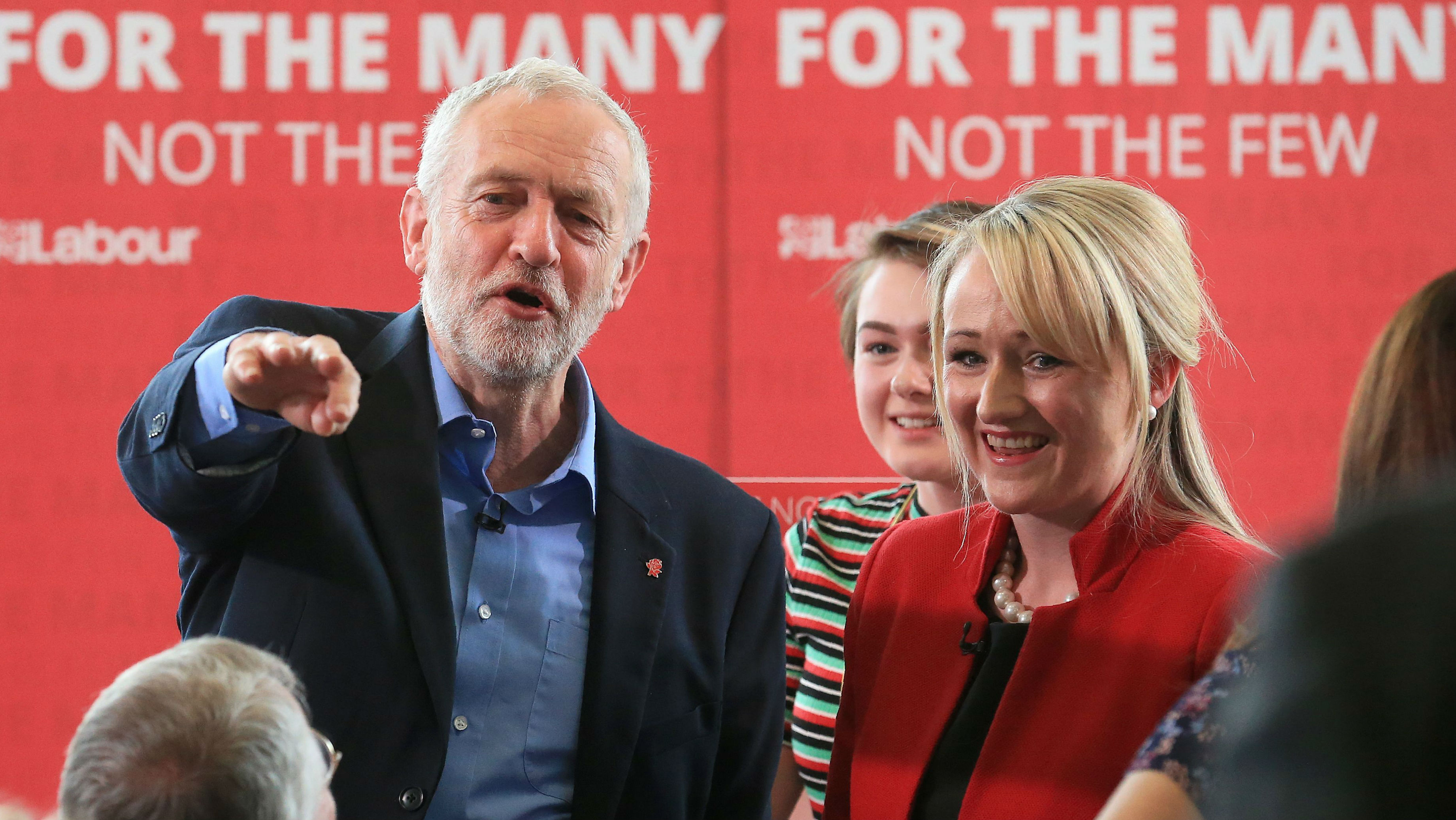Top tips for the Labour leadership contenders
Experts share their advice for the five candidates who passed the first hurdle

A free daily email with the biggest news stories of the day – and the best features from TheWeek.com
You are now subscribed
Your newsletter sign-up was successful
Five candidates have secured places in the battle to replace Jeremy Corbyn as Labour leader - but even greater challenges lie ahead.
Shadow Brexit secretary Keir Starmer, shadow business secretary Rebecca Long-Bailey, Birmingham Yardley MP Jess Phillips, shadow foreign secretary Emily Thornberry and shadow energy secretary Lisa Nandy all secured the required backing of at least 22 MPs or MEPs to move forward in the leadership race.
As the formal election process kicks off following the close of nominations this week, political commentators and experts have been offering advice on how to win the top job.
The Week
Escape your echo chamber. Get the facts behind the news, plus analysis from multiple perspectives.

Sign up for The Week's Free Newsletters
From our morning news briefing to a weekly Good News Newsletter, get the best of The Week delivered directly to your inbox.
From our morning news briefing to a weekly Good News Newsletter, get the best of The Week delivered directly to your inbox.
Target the unions and constituency parties
Under Labour’s rules, the next hurdle in the race is to get the backing of at least 33 Constituency Labour Parties or three affiliates, two of which must be trade unions, in order to get onto the final ballot that goes out to members.
But that challenge could prove tricky for Phillips and Thornberry, according to The Independent’s John Rentoul. “Phillips could possibly organise 33 local parties to back her, but most of them are dominated by Momentum, currently running a North Korean-style consultation of its members to allow them to agree that Long-Bailey should be leader,” he says.
Katy Balls at The Spectator notes that Thornberry’s last-minute entry into the second round - after hitting the threshold of 22 backers less than ten minutes before nominations closed - “was not universally welcomed by Phillips’ allies”, who fear their candidate will find it harder to win the required support from local parties as a result.
A free daily email with the biggest news stories of the day – and the best features from TheWeek.com
Capitalise on the alternative vote system
The party’s alternative vote (AV) system means that members get a first and second preference in the ballot.
If no candidate wins 50%, the candidate with the fewest first preference votes is eliminated and their votes are reallocated to their backers’ second choice. This process is repeated until one of the candidates hits the 50% threshold and is declared the winner.
HuffPost’s Paul Waugh says the Nandy campaign team are “throwing the kitchen sink at making their candidate the second choice of supporters for all her rivals”.
He explains: “If (and it’s a big ‘if’ at present) she can somehow force her way into second place, Nandy’s allies are confident they can beat Starmer with a mass transfer of Long-Bailey supporters’ second preferences.”
In the 2010 leadership election, David Miliband secured 37.78% of first preference votes, compared with 34.33% for his brother, Ed. But it was Ed Miliband who eventually won, by 1.3%, after second preference votes were taken into account.
–––––––––––––––––––––––––––––––For a round-up of the most important stories from around the world - and a concise, refreshing and balanced take on the week’s news agenda - try The Week magazine. Start your trial subscription today –––––––––––––––––––––––––––––––
Offer an inspiring alternative
The Guardian’s Owen Jones points to an Opinium poll of people who did not vote Labour in the December election before offering his top tip for success in the leadership race. The survey found that 43% of those who shunned Labour were put off by the party leadership, while only 12% blamed Labour’s economic policies.
Jones believes these figures have informed Starmer’s campaign, which has won admirers among the rank and file by “showcasing his involvement in popular struggles against Thatcherism and legal work on behalf of the oppressed and against the powerful”.
But Jones argues that the Labour membership also wants to see something new.
“All candidates have pressing questions to answer, and they must be addressed to a membership desperate to end Tory rule while offering an unquestioningly inspiring alternative,” he concludes. “A break with the past, yes, but a genuine one – not a return to the discredited compromise of 2015, or irrelevant nostalgia for 1997.”
-
 Properties of the week: pretty thatched cottages
Properties of the week: pretty thatched cottagesThe Week Recommends Featuring homes in West Sussex, Dorset and Suffolk
-
 The week’s best photos
The week’s best photosIn Pictures An explosive meal, a carnival of joy, and more
-
 The ‘ravenous’ demand for Cornish minerals
The ‘ravenous’ demand for Cornish mineralsUnder the Radar Growing need for critical minerals to power tech has intensified ‘appetite’ for lithium, which could be a ‘huge boon’ for local economy
-
 How corrupt is the UK?
How corrupt is the UK?The Explainer Decline in standards ‘risks becoming a defining feature of our political culture’ as Britain falls to lowest ever score on global index
-
 Will Peter Mandelson and Andrew testify to US Congress?
Will Peter Mandelson and Andrew testify to US Congress?Today's Big Question Could political pressure overcome legal obstacles and force either man to give evidence over their relationship with Jeffrey Epstein?
-
 How long can Keir Starmer last as Labour leader?
How long can Keir Starmer last as Labour leader?Today's Big Question Pathway to a coup ‘still unclear’ even as potential challengers begin manoeuvring into position
-
 What is at stake for Starmer in China?
What is at stake for Starmer in China?Today’s Big Question The British PM will have to ‘play it tough’ to achieve ‘substantive’ outcomes, while China looks to draw Britain away from US influence
-
 Can Starmer continue to walk the Trump tightrope?
Can Starmer continue to walk the Trump tightrope?Today's Big Question PM condemns US tariff threat but is less confrontational than some European allies
-
 The high street: Britain’s next political battleground?
The high street: Britain’s next political battleground?In the Spotlight Mass closure of shops and influx of organised crime are fuelling voter anger, and offer an opening for Reform UK
-
 Alaa Abd el-Fattah: should Egyptian dissident be stripped of UK citizenship?
Alaa Abd el-Fattah: should Egyptian dissident be stripped of UK citizenship?Today's Big Question Resurfaced social media posts appear to show the democracy activist calling for the killing of Zionists and police
-
 Biggest political break-ups and make-ups of 2025
Biggest political break-ups and make-ups of 2025The Explainer From Trump and Musk to the UK and the EU, Christmas wouldn’t be Christmas without a round-up of the year’s relationship drama